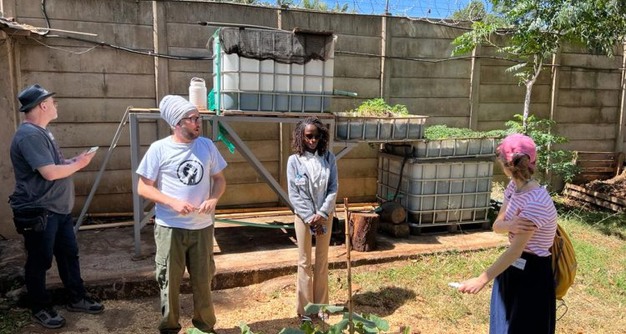African food systems face severe challenges in delivering healthy, protein-rich food to African citizens. Almost a quarter of those who inhabit African cities are still food insecure and malnourished. Value chains need to be redefined and modernised. WUR Wageningen University & Research will analyse the peri-urban food system of eight African cities to define the protein gap. Eight living labs will build fully circular and simple fish (aquaponics) and vegetable (hydroponics) production systems using solar energy, locally available resources, insects, and microbes.
Digital innovation community
Based on previous projects such as Smart Agri Hubs and Digital Agri Hub, Wageningen University & Research will connect these living labs to the growing, vibrant digital innovation community in Europe and Africa that supports start-ups and early business development.

Funding and impact
The INCiTiS-FOOD project receives € 6 million from the EU for developing fitting circular agri-food technologies. The projects bring together twenty-four partners across fourteen countries in Europe and Africa with the aim of improving food and nutrition security in African cities. In addition, the project supports sustainable business models for healthy food through two Open Calls funding business co-creation in African cities.
The project will have a larger societal impact by gathering Universities, NGOs, SMEs, banking intermediaries, and many more. They work together in a joint mission to create viable practices, inclusive jobs, sustainable income, and a healthy environment in six countries (Kenya, Ghana, Nigeria, Sierra Leone, Cameroon, and Gabon).
Source: wur.nl
